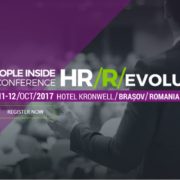Recruitment based on Organisational Culture
Appointing leaders may seem to be easier said than done, but this is not the case at all. According to an academic research paper done by the American Psychological Association, the rate of successful hired leaders is around 30%. In the United States alone, 75% of employees have reported that their direct manager has been poorly chosen and it obstructs them from doing their work. Furthermore, 65% of them would accept lower salaries in order to change their manager with someone better equipped for the job.
There are numerous reasons why this situation occurs over and over again. Mostly, this is due to the over-reliance on intuition in the early stages of recruitment instead of using proper scientific validated selection tools. The problem that almost always arises when hiring new leaders is their incongruity with the organisation’s culture. Even though on paper the candidates may seem perfect and they tick all the boxes in terms of skills, leadership capabilities and expertise, organisations tend to overlook the congruence between their values and the candidate’s values. Consequently, leaders hired for their excellent skills and talents are often fired on the premise of poor cultural fit.
What Is Organisational Culture?
In layman’s terms, organisational culture revolves around the collective mindset and norms of employees, as well as palpable aspects revolving around the work environment which directly mirror these beliefs. The effectiveness of organisational culture relies upon the company’s workforce, business market and strategies. Moreover, given the fact that there are countless organisations around the world, organisational cultures are abundant and different altogether.
How Can Culture Be Related to Recruitment?
There is a close relation between the recruitment process and organisational culture due to their association to employee selection and retention. Attractiveness wise, culture represents everything ranging from brand image to company projects. There are organisations that hold culture in high regard and plan their recruiting accordingly. Due to this type of recruitment, only the right people are being targeted and attracted, whilst others are somewhat determined to look elsewhere for employment.
Primarily, experience and expertise are central characteristics to a leaders’ potential, but, unfortunately, they are unsatisfactory in determining leadership performance. To be more precise, personality traits such as: curiosity, self-awareness and integrity won’t help predict a proper leader to fit the role within the company. In order to properly evaluate how fit a leader is with an organisation, their motives and values should be analysed. These characteristics act as an inner compass, revealing how they would conduct activities, in what type of culture they would thrive and what kind of projects they will deem necessary or engaging.
For instance, if a leader truly values tradition he or she will have a strong opinion regarding right and wrong, will have an affinity for hierarchical companies and will exhibit a low tolerance for innovation. Simply put, these types of leaders would struggle in a creative environment. Leaders who value relationships will develop a strong bond with their staff and their focus will be on creating and maintaining collaborative work and social relations. If they are given a role within an individualistic organisational culture, which would isolate them, they will fail. Subsequently, we have altruistic leaders who focus on improving employees’ lives. If the organisations they work at are profit driven, their skills will be wasted.
Understanding the company’s organisational culture
It is absolutely essential for a company to know their own culture; otherwise knowing a leader’s motives and values becomes practically pointless. Regrettably, a vast majority of companies do not understand the importance of pinpointing their culture and generally tend to rely on clichés such as: ‘entrepreneurial’, ‘innovative’, ‘diverse’ and ‘results-oriented’. Of course, there is the off-chance a company hires a leader who can perform in any kind of environment. Unfortunately, these leaders are an exception, a rare breed, because in most cases potential in leadership depends greatly on context.
Although its significance, organisations don’t pay attention to culture, they just let it evolve from within. It is somewhat good news, due to the fact that if companies start recruiting with the idea of developing a proper organisational culture, it can vastly improve employee retention and performance which translates into growth and profits. Another argument for cultural-based recruitment is that while job demands may constantly change, culture will always be a constant within the company. Statistically, people being hired in part to their cultural fit are more likely to become a company asset.
Great People Inside provides easy-to-use tools and processes to attract, assess, match, select, onboard, manage, develop, benchmark and maintain workforces anywhere in the world.
Finding the right talent, the best fit for the job and your organisation, can be a very challenging task. It requires deep knowledge of your own organisation’s culture and keen understanding of the candidate’s personality, strengths, interests, work style and other characteristics. Our technology and solutions will do the work for you, helping you find employees who can flourish and reach the highest performance required to constantly bring your company forward.
Request a free demo:
Sources:
https://hbr.org/2017/06/when-leaders-are-hired-for-talent-but-fired-for-not-fitting-in
https://www.forbes.com/sites/propointgraphics/2016/11/13/hiring-for-smart-talent-not-direct-experience/#37b671f42dcf
https://hiring.monster.com/hr/hr-best-practices/recruiting-hiring-advice/strategic-workforce-planning/hire-for-the-organization.aspx












